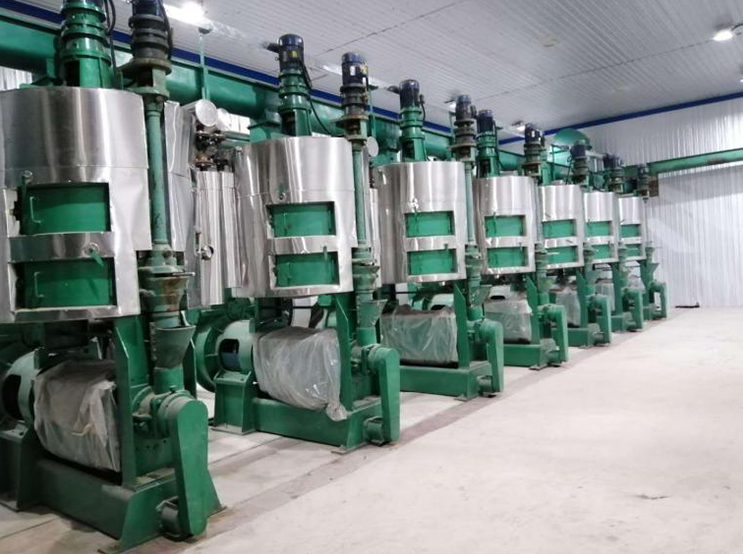ធ្នូ . 03, 2024 14:44 Back to list
Refined Cottonseed Oil Production Process and Factory Overview
The Cottonseed Oil Refining Industry An Overview of Production and Key Considerations
Cottonseed oil is a versatile and widely used vegetable oil derived from the seeds of cotton plants. It plays a significant role in the culinary, cosmetic, and industrial sectors. The refining of cottonseed oil is crucial for removing impurities and enhancing its quality, making it suitable for various applications. This article explores the cottonseed oil refining process, the significance of refining units, factors influencing the manufacturing of refined cottonseed oil, and future trends in the industry.
The Refining Process
The refining of cottonseed oil involves several stages designed to improve its quality and safety for consumption. These stages typically include degumming, neutralization, bleaching, and deodorization.
1. Degumming This initial step involves the removal of phosphatides and other hydrophilic substances. Water or acid solutions are added to the oil to hydrate the phosphatides, allowing them to be separated from the oil.
2. Neutralization This stage addresses free fatty acids, which can contribute to off-flavors and reduce the shelf life of the oil. An alkali solution, usually sodium hydroxide, is added to neutralize the free fatty acids, forming soap that is then removed through centrifugation.
3. Bleaching The bleached oil undergoes the removal of color pigments and any remaining impurities. This is done using adsorbent materials, such as activated clay or charcoal, which trap pigments and impurities.
4. Deodorization In the final stage, steam distillation is used to eliminate volatile compounds that can impart strong odors and flavors. This ensures that the refined cottonseed oil has a neutral taste, making it suitable for cooking and food production.
The Importance of Refining Units
Refined cottonseed oil is produced in specialized facilities known as refining units. These units play a critical role in ensuring the consistency and quality of the final product. Some key factors to consider include
- Technology and Equipment The efficiency of a refining unit largely depends on the technology and equipment used in the refining process. Advanced technologies, such as continuous refining methods and sophisticated filtration systems, can improve production efficiency and oil quality.
cottonseed oil refined unit factory

- Quality Control Ensuring the quality of refined cottonseed oil is paramount, as it must meet regulatory standards and consumer expectations. Refining units must implement strict quality control measures throughout the refining process to monitor for contaminants, maintain oil stability, and ensure flavor profiles.
- Sustainability In today's market, there is growing emphasis on sustainable practices within the food industry. Refining units are increasingly adopting eco-friendly methods to reduce waste, lower energy consumption, and minimize environmental impact. This includes recycling by-products and optimizing water usage.
Market Demand and Future Trends
The demand for refined cottonseed oil has been steadily increasing, driven by various factors. The growth of the food processing industry, a rise in health-conscious consumer choices, and the expansion of the culinary sector are significant drivers of this demand. Moreover, the oil's favorable fatty acid profile, which combines health benefits and culinary versatility, positions it well in a competitive market.
Looking to the future, several trends may shape the cottonseed oil refining industry
- Health Trends With consumers becoming more health-conscious, there is a demand for oils that offer health benefits, such as heart health. Cottonseed oil, being rich in polyunsaturated fats, may see increased preference among health-focused consumers.
- Innovation in Refining Techniques Advances in refining technology may lead to more efficient processes and higher quality oil. Innovations such as membrane filtration and enzymatic degumming are expected to gain traction.
- Market Diversification As global markets expand, there is potential for cottonseed oil to penetrate new regions. This can lead to diversified applications, from cooking to cosmetics, increasing its market share.
Conclusion
The refining of cottonseed oil is a vital process that enhances the quality and safety of this valuable commodity. As the industry evolves with technological advancements and shifting consumer demands, refining units play a critical role in producing high-quality cottonseed oil that meets the needs of a diverse marketplace. With a focus on sustainability and health, the future of cottonseed oil refining looks promising, supporting both the industry and health-conscious consumers.
-
HP 120 Cold Oil Press-Hebei Huipin Machinery|Oil Extraction, Cold Pressing
NewsAug.10,2025
-
HP 120 Cold Oil Press - Hebei Huipin Machinery | Cold Pressing, Energy Efficiency
NewsAug.10,2025
-
Efficient Black Seed Oil Expeller & Multi-Seed Oil Press
NewsAug.10,2025
-
HP 120 Model Cold Oil Press-Hebei Huipin Machinery|Cold Oil Extraction, High Efficiency
NewsAug.09,2025
-
HP 120 Cold Oil Press-Hebei Huipin Machinery|Energy-Efficient Oil Extraction&High-Capacity Pressing
NewsAug.09,2025
-
HP 120 Model Cold Oil Press - Hebei Huipin Machinery Co., LTD | Automatic Temperature Control, Vacuum Filtration
NewsAug.09,2025
